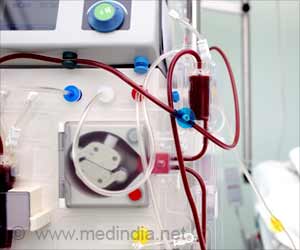The Kidney Disease: Improving Global Outcomes (KDIGO) published a report on the importance, challenges, and potential solutions for increasing access to home dialysis modalities.
Highlights:
- Home dialysis (home hemodialysis [HD] and peritoneal dialysis [PD]) leads to improved patient autonomy, satisfaction, clinical results, and quality of life
- Low uptake and access to home therapy is influenced by various factors, requiring the development of low-cost self-management dialysis and aligned health policies
- Strategies to expand home dialysis use and empower patients can lead to better outcomes and contribute to global transformation in dialysis care
Kidney Disease: Improving Global Outcomes (KDIGO) is pleased to announce that the Home Dialysis Controversies Conference Report has been published in
Kidney International. In May 2021, Jeffrey Perl, M.D. (St. Michael's Hospital, Unity Health, University of Toronto, Canada) and Martin Wilkie, MD (Sheffield Teaching Hospitals NHS Foundation Trust, United Kingdom) co-chaired the third virtual Controversies Conference in the KDIGO
dialysis series.
Advertisement
Increasing Access to Home Dialysis Modalities: Importance, Challenges, and Potential Solutions
Home dialysis modalities (home hemodialysis [HD] and peritoneal dialysis [PD]) are linked to increased patient autonomy and treatment satisfaction, as well as improved clinical results and quality of life in many circumstances. "Everyone who is on dialysis should have access to home therapy," Dr. Perl stated. "Unfortunately, uptake is low in many parts of the world, and access is influenced by a variety of factors." There is an urgent need to develop and implement low-cost self-management dialysis, as well as ways for assessing its success. To ensure equal access to home therapies regardless of
sociodemographic or socioeconomic position, health policy issues and resources must be aligned. Despite major constraints, we can enhance global access to home dialysis with strong leadership from informed and motivated clinical teams."
Advertisement
Strategies for Expanding Home Dialysis Use and Improving Patient Outcomes
To address the global underutilization of home dialysis therapies, the conference aimed to identify techniques and strategies that expand the use of home dialysis while keeping costs in mind. Participants undertook an in-depth examination of particular and local characteristics that influence home dialysis use, while also evaluating candidature, eligibility, and financial consequences for both patients and care partners. The conference also discussed the impact of expanding home dialysis access on clinical and patient-reported outcomes, as well as how to best improve the home dialysis experience for individuals and care partners.
Advertisement
Empowering Dialysis Patients to Manage Their Treatment at Home
"Most dialysis patients are treated at centres where it is not standard practice to train people to manage their dialysis at home," Dr Wilkie explained. "There is now compelling evidence that people with
chronic illnesses who are more involved in their care have better outcomes." More effective mechanisms for informing and involving dialysis patients in their treatment will contribute to global transformation." The conference report will be a valuable resource in facilitating the much-needed development and evaluation of local initiatives to enhance access to home dialysis therapy.
Source-Medindia












